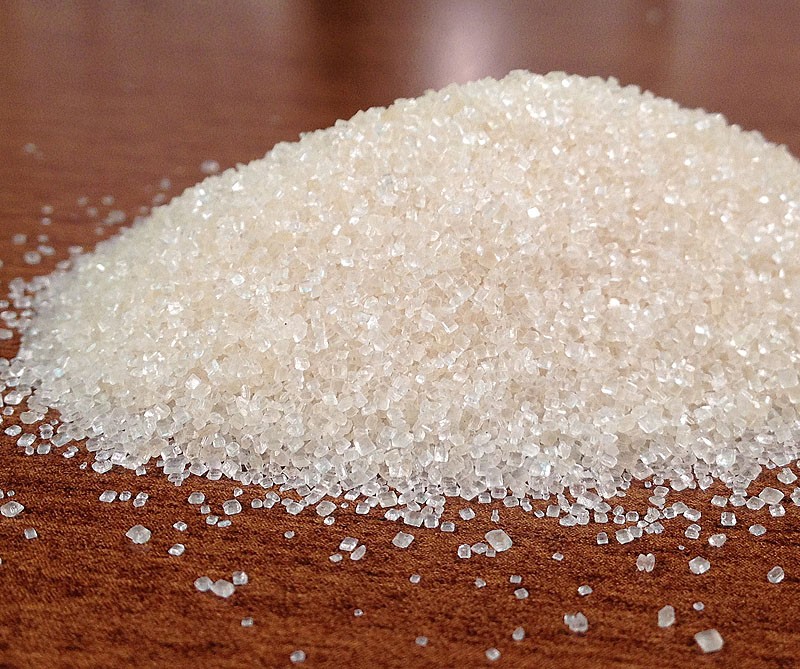Cane Sugar Processing Explained: What Occurs Inside a Sugar Mill
Cane Sugar Processing Explained: What Occurs Inside a Sugar Mill
Blog Article
A Thorough Overview of the Health And Wellness and Economic Ramifications of Cane Sugar Processing on Local Areas
Walking stick sugar handling plays a crucial function in forming the financial landscape of local neighborhoods, supplying employment possibilities and stimulating supplementary markets. Nonetheless, the wellness implications connected with high sugar usage can not be forgotten, as they add to climbing prices of weight problems and diabetes mellitus. This nuanced dynamic welcomes an essential assessment of how areas can optimize economic gains while resolving journalism health challenges they face. The exploration of lasting methods and educational efforts might simply hold the trick to reconciling these conflicting rate of interests. What strategies might neighborhoods carry out to achieve this equilibrium?
Financial Benefits of Walking Cane Sugar Processing
Walking cane sugar handling uses significant economic advantages that extend beyond the prompt farming market. The farming and processing of sugarcane develop numerous job opportunities, from farming to manufacturing and distribution. This employment generation not only sustains regional economies yet additionally cultivates area advancement by offering secure earnings resources for family members.
Moreover, the sugar industry promotes ancillary organizations, including transportation, tools supply, and product packaging services (Cane Sugar Processing). As these industries expand, they add to an extra durable economic framework, boosting total community resilience. The export possibility of refined walking cane sugar better intensifies economic benefits, placing regions as competitive gamers in worldwide markets
Financial investment in modern processing centers can result in boosted performance and efficiency, thereby reducing waste and enhancing source usage. This shift not just profits the local economic situation however additionally sustains sustainability efforts by decreasing ecological influences.
In addition, the revenue produced from walking stick sugar handling can be reinvested in neighborhood framework, education and learning, and healthcare, advertising holistic neighborhood development. Overall, the economic advantages of cane sugar handling are diverse, giving a foundation for withstanding success in farming regions.
Health Dangers Connected With Sugar Consumption
Excessive sugar intake presents considerable health and wellness risks that call for major interest. High intake of sugarcoated, specifically from processed drinks and foods, has been connected to numerous wellness complications. Among one of the most pressing problems is excessive weight, as sweet diet regimens add to a boosted caloric consumption without offering crucial nutrients. This extra can lead to metabolic problems, including type 2 diabetes, which has actually become increasingly widespread in both children and grownups - Cane Sugar Processing.
In addition, high sugar usage is related to heart disease. Elevated blood sugar level levels can bring about insulin resistance, a precursor to numerous heart-related issues. Furthermore, sugar can have detrimental effects on oral health, resulting in tooth cavities and gum illness, as microorganisms in the mouth grow on sugar, creating acids that wear down tooth enamel.
In addition, emerging study recommends a potential web link between high sugar consumption and mental health and wellness disorders, such as depression and anxiety. As areas face these health threats, it comes to be important to advertise understanding and urge much healthier dietary choices. Attending to sugar usage is important not only for individual health yet likewise for the total well-being of neighborhood areas, emphasizing the need for comprehensive public health methods.
Ecological Impacts of Sugar Production
Regularly ignored in conversations regarding sugar's effects is the substantial ecological effect of sugar production. The growing of sugarcane typically necessitates extensive land use, bring about logging, loss of biodiversity, and disruption of regional ecosystems. The conversion of forests and marshes into sugar plantations can cause habitat devastation, harmful various varieties and changing ecological equilibrium.
Additionally, sugar manufacturing is resource-intensive, consuming substantial quantities of water for watering. This can bring about deficiency of local water resources, detrimentally affecting both farming practices and area accessibility to clean water. Additionally, the use of chemical plant foods and pesticides in sugarcane farming can add to dirt deterioration and water contamination, as runoff from these chemicals goes into nearby rivers and lakes, impacting aquatic life and human health and wellness.
The ecological impact expands to the handling stage, where power consumption and waste generation further worsen ecological concerns. Air contamination from burning sugarcane fields, together with greenhouse gas emissions, add to environment modification. Thus, the ecological implications of sugar production warrant severe factor to consider, advising stakeholders to embrace even more sustainable methods to mitigate these unfavorable effects on local environments and communities.
Work Production and Area Development
The environmental difficulties positioned by sugar production are often counterbalanced by its capacity for financial benefits, especially in task development and area advancement. The walking cane sugar sector acts as a considerable source of employment in several country areas, offering work across numerous skill degrees, from farming labor to processing and circulation functions. This work not only sustains individual households however likewise adds to the general financial vitality of regional communities.
Furthermore, the establishment of sugar processing centers boosts supplementary organizations, such as transport solutions, devices supply, and maintenance companies. As these businesses grow, they develop additional tasks and strengthen local economic climates. The earnings produced from the sugar sector also results in boosted tax revenues, which can be reinvested right into neighborhood solutions such as healthcare, framework, and education growth.
Additionally, the sugar sector often takes part in community development initiatives, such as supporting neighborhood institutions and health and wellness programs, therefore improving the high quality of life for locals. By promoting solid neighborhood connections and advertising financial development, the walking cane sugar processing field plays a crucial function in uplifting neighborhood populations, making it a crucial component of lasting growth methods in sugar-producing areas.
Harmonizing Wellness and Economic Growth
In navigating the complexities of walking more information stick sugar processing, a vital challenge depends on balancing health factors to consider with financial growth. The sugar market considerably adds to regional economic climates by creating work, boosting relevant markets, and enhancing tax obligation earnings. However, the wellness implications related to too much sugar consumption can lead to persistent conditions such as excessive weight, diabetes mellitus, and cardio problems, which can problem public health and wellness systems and lessen labor force productivity.

Additionally, governing structures can play a critical role in leading sector practices towards even more sustainable and health-conscious techniques. By fostering cooperation in between federal government bodies, health and wellness organizations, and the sugar sector, areas can navigate the duality of wellness and economic development, ensuring that the advantages of walking cane sugar handling are equitably shared while focusing on public health and wellness.
Final Thought
Finally, the handling of cane sugar offers both significant economic advantages and noteworthy health and wellness threats for go to this site local communities. While it promotes task creation and promotes local growth, the involved health worries, especially regarding weight problems and diabetic issues, demand a mindful harmonizing act. By advertising accountable intake and investing in neighborhood education and learning and sustainable techniques, it is feasible to make the most of financial benefits while decreasing unfavorable health effects, consequently making certain a healthier future for regional populaces.
In addition, sugar can have harmful results on oral health, resulting in dental caries and gum tissue illness, as microorganisms in the mouth grow on sugar, creating acids that wear down tooth enamel.
Attending to sugar intake is essential not only for individual health but likewise for the total wellness of local neighborhoods, highlighting the need for thorough public health and wellness strategies.
Frequently forgotten in conversations regarding sugar's ramifications is the considerable ecological influence of sugar manufacturing. The wellness ramifications linked with extreme sugar intake click to investigate can lead to persistent diseases such as obesity, diabetes mellitus, and cardiovascular concerns, which can worry public wellness systems and reduce workforce productivity.

Report this page